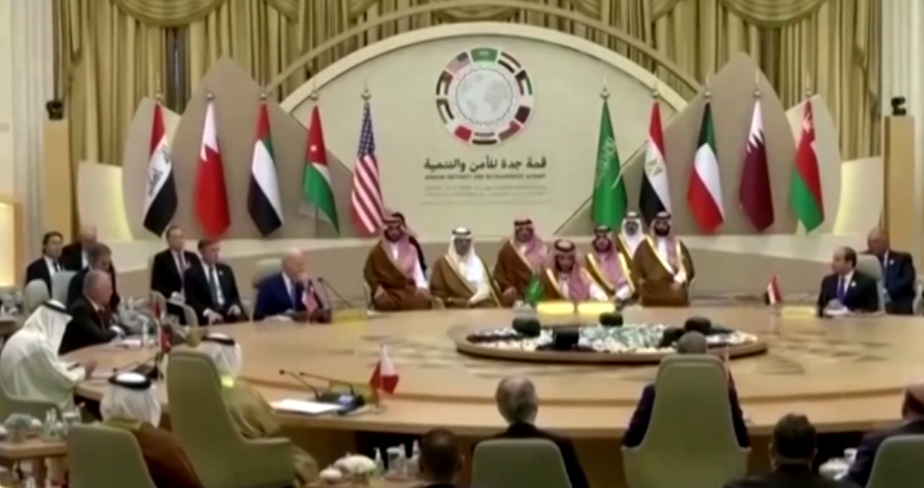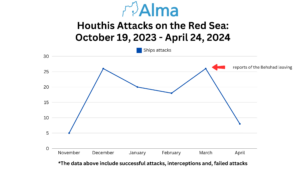While Biden is being photographed with Arab leaders at the summit in Jeddah, the UAE has made a bizarre announcement that it is not interested in joining the axis of countries that have allied against Iran. It was also reported that the UAE would send an ambassador to Tehran to build bridges with Iran. Iran is a few dozen miles away from the shores of the UAE. The United Arab Emirates is the country that not only signed the Avraham Accords with Israel but also has the most extensive normalization process with Jerusalem.
At the same time, a similar announcement was made by the Iraqi Prime Minister. However, it is clear that expectations from him were much lower.
The leader of the world’s greatest power comes to the Middle East with a message of goodwill, absorbs criticism from home over the loss of values after he fist bumped with the Saudi regent which he called a murderer – and the results are vague promises and statements that seem to nullify the conference’s achievement.
What is happening here?
Did President Biden come out of nowhere from a visit to the Middle East? What has he achieved other than approving Israeli flights over Saudi Arabia? Even in the area of oil prices, it is not sure that the Saudis can raise production at all.
To answer this question, one needs to understand the conduct of the Arab leaders. In the Middle East, there are two layers of conduct at the same time. First, the official layer above the surface is essential in terms of message. For example, the image of Biden with the Arab leaders in Jeddah certainly conveys an important message to Iran. But the more substantial layer of conduct is that “under the radar.” Here, one has to understand that Arab leaders are less interested in words and more in deeds. Without framing the acts in official agreements. As the trial article
When you have to shoot – shoot. Don’t talk!
The Arabs, led by the Saudis, wanted to ensure that the United States provided them with defense systems and helped them defend against the Iranian threat. But they are not ready to completely sever all ties with the Iranians. In their view, democratic regimes are much less stable than totalitarian regimes. In a democracy, policy changes every few years. Therefore, it is also important for them to “preserve bridges” with Iran. Thus, using the umbrella of the American defense as a means of improving positions in the conflict with Iran.
It’s been working like this for years. Qatar is home to the largest American base in the Middle East. However, it maintains ties with extremely problematic players like Iran and Hamas. Sometimes it seems that Israel and the Americans are even comfortable with this arrangement. Turkey is also trying to position itself as a center between East and West and between the Arabs and the Persians. Even the Jordanian king realizes that the Syrian President is not losing his seat and maintaining dialogue and open relations with Syria and Iran.
It seems that Israel and perhaps also the United States wanted to create in this visit a world in which there is a clear division of good and bad, while players in the Middle East want to keep all options open without paying the price for it. At the moment, it also seems that no one is forcing the Arabs to choose.
There is no doubt that during Biden’s visit to the Middle East, the Arab players got what they wanted. Days will tell if the United States also got what it wanted.
*Featured image from a screenshot.






